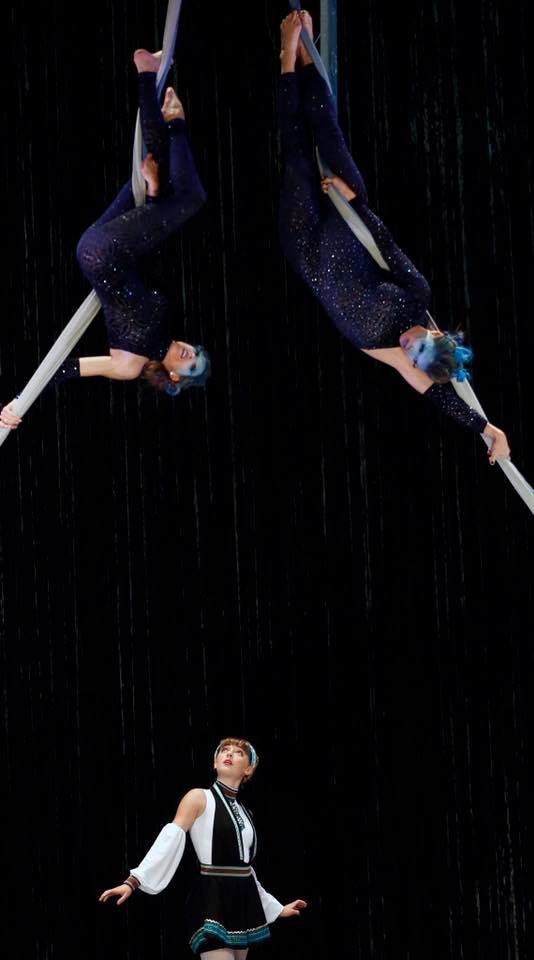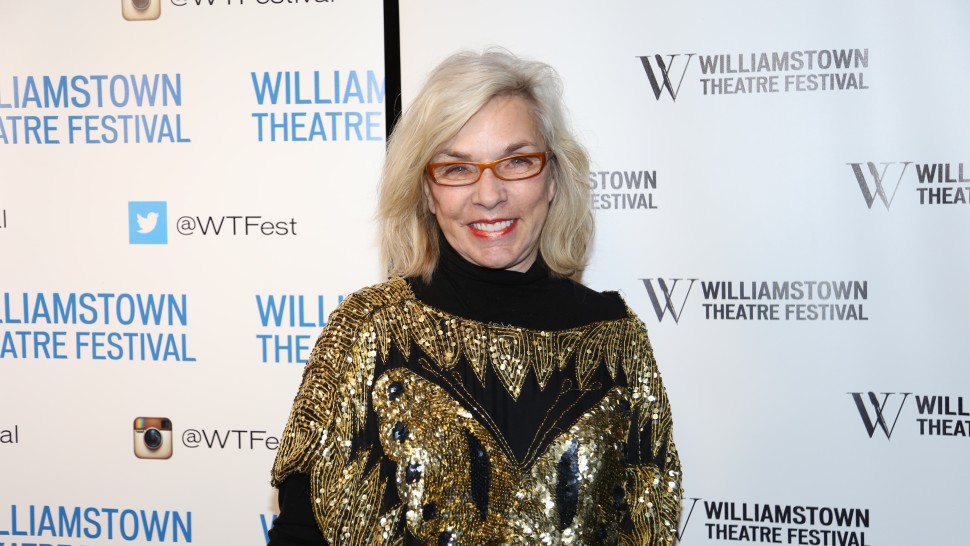MAKING ART FROM CHAOS: DECONSTRUCTING PHANTOM BAND
Phantom Band opens November 10 at Walden Theatre. Krista Knight will participate in a TalkBack discussion following the November 12 matinee.
Tell us a bit about yourself, what are you doing now, what have you been doing the past few years?
I grew up in Portola Valley, California, under the auspices of a special ed teacher and an entrepreneur. I rode horses, stalked banana slugs, and generally had an uproarious time before heading to Brown. Well, that’s not exactly true, but I can attest to the luck associated with kissing the aforementioned yellow gastropod. I started school studying neuroscience before switching to theater, thanks to my undergraduate advisor and mentor Paula Vogel. I moved to NYC in 2006 where I shacked up with a paramedic in an east village tenement with no shower and the bathtub in the kitchen. I fondly remember returning home nights to find un-insured friends being stitched up in said bathtub. It’s been years since I’ve inquired, “Why is our bathroom covered in blood?” While in New York, I got a master’s in performance studies from NYU and spent a year as the Page 73 Playwriting Fellow.
Three years ago I moved to San Diego to take up surfing and study with Naomi Iizuka at the Playwriting program at UCSD. Highlights include narrowly escaping getting voted off graduate student council for losing a bunch of money on a drag ballet, annual grunion runs, and writing a new musical with Arkansas-based Casio-pop band “David’s Pegasus.” After graduating from UCSD, I spent the summer workshopping a silent opera at WordBRIDGE, writing two plays for young adults for Berkeley Rep, and developing my next play at the Tofte Lake Center. In September I began the year long Shank Playwriting Fellowship at the Vineyard Theatre in New York City.
Let’s start at the beginning, what spawned your idea for Phantom Band?
I wanted to see what would happen if I adapted Phantom of the Opera for a high school marching band with the gender roles reversed. I don’t care what anyone says—I love me some Andrew Lloyd-Weber.
My dad has limited speech capacity and I’ve always been interested in language. I learned to read at the same time as my dad. After his stroke, he lost language and use of the right side of his body.
As I grew up, I became part of the process of grasping for expression with him, participating in the search for words, riffing on his words in the hunt for the buried one. I am gripped by the way in which language tries—and the way in which language fails. The palpable dramatic tension in that disparity of almost attainment—almost perfect emotional mimesis—if we can only find the word.
As I learned to construct language, I became intimately familiar with its successes and failures, with how it is deconstructed, how it is destroyed. I saw language emerge—sprung forth through fricatives and glides. I learned the power of spoken language. Language even more beautiful and powerful as a deconstruction.
I saw that language always bears within it creative potential. It was the key to regaining our lives and selves after they were so profoundly altered. A passion for language and its investigation has stayed with me and I think is the reason why the characters in Phantom Band struggle with deteriorating modes of articulation. And why the play looks at what happens when words are replaced with transcendent music.
Did you draw any inspiration from your own experiences in high school?
This isn’t high school—but when I was in elementary school I used to torment this kid named Ross. I invited everyone in my third grade class to my birthday pool party except for Ross, and only invited him when the teacher called me (at home!) and made me. When we both showed up on Halloween in 4th grade as velociraptors (Tint’s costume of choice) I was mortified. Mortified! I thought he was so lame. And I didn’t have enough self-awareness to be like: “Krista – you are also dressed up a velocitraptor.” Of course I was probably in love with him.
And of course when I was writing the play in San Diego I ran into Ross again—he had become a Ph.D. in computer science and, as luck would have it, terribly good looking.
So that’s where Tint’s costume came from.
But really, in high school, I was drawn to the visual and performing arts because it was an outlet for expression. I spent a lot of time trying to force myself not to feel any particular way about the things I was experiencing. I wish I had given myself more permission. I would kill to feel things as passionately as I did when I was at the brink of adulthood. But I wouldn’t give up the tools I have now to navigate through life.
How do you think teenage actors will approach this play and the characters? Any difference from the way “professional” adults would?
Anything can happen in theater and actors playing ages other than their own is absolutely appropriate and native to the form. But teenagers acting as teenagers, being in those bodies, accessing experiences from the gut – from the immediate world around them – I don’t think anything could be better, more honest, or more exciting for this play.
Music is crucial to Phantom Band, even if it’s secondary to the “harmony of the relationships.” Did you have any kind of musical ideas for staging the play, or were you listening to anything particularly “angsty” while writing?
I was listening to a lot of “What Cheer? Brigade,” which is a sort of punk/marching band out of Providence. They perform these amazing, sprawling shows in all kinds of non-traditional venues. Imagine drum suspenders over bare chests and skinny jeans, processing trombones on the bar, almost as many performers rocking out the stage (and maybe the rafters) as there are audience members. They’re my favorite band to see play live.
Beethoven was important, especially the bombastic stuff, and especially the stuff before and after he went deaf to see how it changed.
I was also listening to Meatloaf’s Bat Out of Hell 2 – because that’s what I listened to in high school and because it is awesome.
My fantasy is that the play ends with a cataract of 200-plus marching band members flooding the stage when the ragamuffin band finally plays. Even though the artistic transcendence they reach at the end isn’t exactly about coordinated, military inspired movement – anything that creates auditory/expressive ecstasy is right on.
These characters are each at a crossroads of identity, in a way that hints back to The Breakfast Club and other similar movies. Are there particular films or books that made an impact on you as you navigated the minefield of adolescence as you were crafting this script?
Breakfast Club, absolutely. I’ve got a section in my bookcase of marching band books and music theory. Documentaries about marching bands. I went to see a BUNCH live in San Diego. They had this one competition of high school marching bands from all over southern California. They were in the full polyester outfits and it was HOT OUT. Their parents ran alongside with carts of water.
Oliver Sacks’ Musicophia was a big influence. The brain is this amazingly elastic thing. The way we process music and the incredible way bypasses and mistakes happen – and the way miraculous alternate connections and associations are made – I find it disturbing, fascinating, and endlessly inspiring.
You use the phrase “making art from chaos” in describing your work. Can you unpack that phrase a bit on context of the play?
What’s the other option? Curling into a ball and ignoring it? Vanquishing chaos from our lives by preempting its possibility? Compartmentalizing it in such a way as to deaden it?
I wouldn’t want any of those (though I’m sure I oscillate between all of them). I think we’re artists because we don’t want to compartmentalize or ignore. We want to take the painful and confusing and inspiring and joyful messy things we experience and mine from them beauty and truth.
What other projects are you working on currently? Have anything going to stage soon?
I think that everything I write engages with music in some way, but recently I’ve been collaborating on my first straight up casio-pop musical with Arkansas based band “David’s Pegasus.” I was a huge fan and emailed the band’s website three years ago to see if they’d want to write something together. They, miraculously, said yes. (FYI I’m a huge proponent of finding your artistic cohorts no matter where they hail.) About a year ago David’s Pegasus and I settled on 19th century death portraiture as our first topic to tackle, and we’ve been working on the musical ever since.
It’s called Salamander Leviathan and it’s about to go up on Halloween at Ars Nova in New York. David’s Pegasus and I also just started our next piece – a post-apocalyptic surf musical called Doomsurfing which we’ll workshop at the Vineyard at the end of the month. In November I’m writing an “opera” (loosely defined) about my dad who lives in the Airport Hyatt and his Ethiopian nurse/girlfriend. We’ll do an in-process showing at P73 Theater Company at the end of November. In December I’m workshopping a play called Un-hinged at Playwrights Center of San Francisco. I’ll also be working on the play with terraNOVA Collective here in New York over the course of the year.
Phantom Band
November 10 & 11 @ 8:00p.m.
November 12, 17, 18, 19 @ 7:30 p.m.
Walden Theatre
1123 Payne Street
Louisville, Kentucky
(502) 589-0084
http://www.waldentheatre.org/
Phantom Band
November 10 & 11 @ 8:00p.m.
November 12, 17, 18, 19 @ 7:30 p.m.
Walden Theatre
1123 Payne Street
Louisville, Kentucky
(502) 589-0084
http://www.waldentheatre.org/




